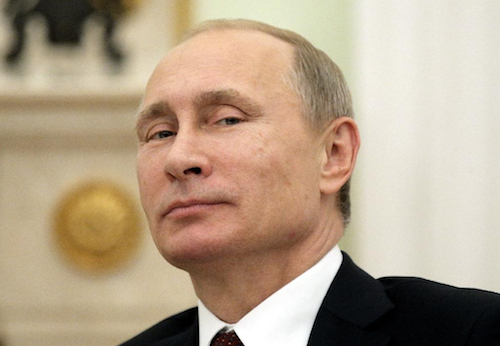The outcome of Russia‘s parliamentary election was never in question. The United Russia party of President Vladimir Putin has dominated the political landscape ever since it was founded in 2001.
Even so, the margin of the victory was unexpected. The September 18 elections were held against the backdrop of a protracted economic crisis, tensions between Russia and the West, and a war of attrition in the country’s neighbourhood. Lower oil prices and western sanctions have hit ordinary Russians hard.
Russia’s economy contracted by 3.7 per cent last year and is expected to shrink further by 0.7 per cent this year. Conventional wisdom suggests that economic hardships trigger anti-incumbency sentiment. But in Mr. Putin’s Russia just the opposite has happened. When the results were declared, his party won more than three-quarters of the 450-member Duma.
The Communist Party and the Liberal Democratic Party have retained some presence in the national Parliament, while the Yabloko and the Parnas, the two liberal parties critical of the Kremlin, failed to even enter the Duma. This could partly be because of the lack of a united opposition in Russia. The Communists and Liberal Democrats are hardly opposition parties, and agree with the Kremlin on most policy decisions.
The anti-Kremlin parties have failed in, or been hindered from, building a broad base among the electorate. Alexey Navalny, the leader of the popular anti-government protests of 2011, has been barred from contesting elections. Boris Nemtsov, another popular opposition leader, was shot dead last year in Moscow. At present, there is no opposition leader in a position to challenge the personality cult of Mr. Putin.
In any case, memories of the anarchic pre-Putin era may still be prompting Russians to stick by him. Mr. Putin is largely credited with fixing the economy and providing a stable political leadership to the country. Under his watch, Russia has come out of its self-imposed strategic retreat and started playing an active global role. Russia’s annexation of Crimea from Ukraine and a combative foreign policy in Syria and elsewhere have proved popular among his domestic constituents. But the Russian economy continues to be heavily dependent on energy exports. If crude oil prices remain low for long, economic pain will persist. Though the muscular foreign policy is popular at home, Moscow has had to pay a heavy price for it. Whatever Mr. Putin had done in his first and second terms to rebuild ties with Europe, particularly with Germany, lies in a shambles in the wake of the Ukraine crisis. If Mr. Putin wants to rebuild Russia as a credible global power, a persistent economic crisis and a stormy neighbourhood are not going to help.
(The Hindu)
